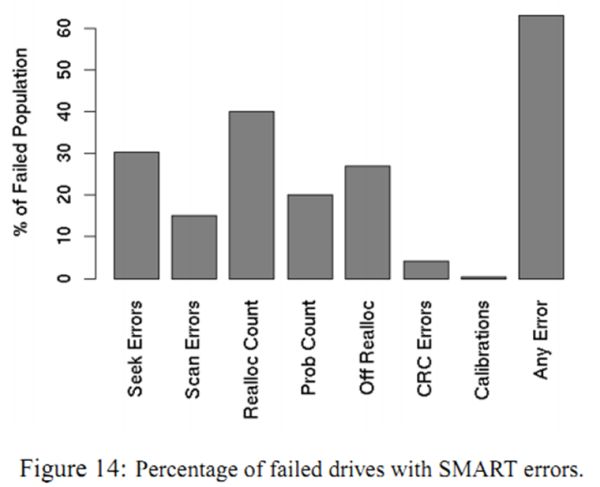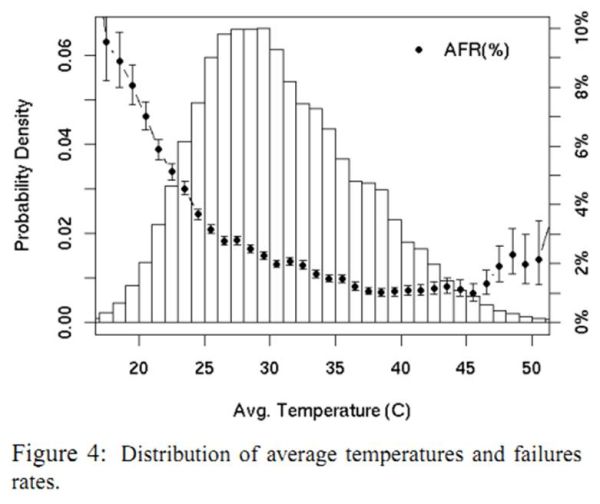File Server Builder's Guide
by Zach Throckmorton on September 4, 2011 3:30 PM ESTHard drives
One of the most frequently asked questions I hear is 'what's the most reliable hard drive?' The answer to this question is straightforward - the one that's backed up frequently. Home file servers can be backed up with a variety of devices, from external hard drives to cloud storage. As a general guideline, RAID enhances performance but it is not a backup solution. Some RAID configurations (such as RAID 1) provide increased reliability, but others (such as RAID 0) actually decrease reliability. A detailed discussion of different kinds of disk arrays is not within the scope of this guide, but the Wikipedia page is a good place to start your research if you're unfamiliar with the technology.
As for hard drive reliability, every hard drive can fail. While some models are more likely to fail than others, there are no authoritative studies that implement controlled conditions and have large sample sizes. Most builders have preferences - but anecdotes do not add up to data. There are many variables that all affect a drive's long-term reliability: shipping conditions, PSU quality, temperature patterns, and of course, specific make and model quality. Unfortunately, as consumers we have little control over shipping and handling conditions until we get a drive in our own hands. We also generally don't have much insight into a specific hard drive model's quality, or even a manufacturer's general quality. However, we can control PSU quality and temperature patterns, and we can use S.M.A.R.T. monitoring tools
One of the most useful studies on hard drive reliability was presented by Pinheiro, Weber, and Barroso at the 2007 USENIX Conference on File and Storage Technologies. Their paper, Failure trends in a large disk drive population, relied on data gleaned from Google. So while the controls are not perfect, the sample size is enormous, and it's about as informative as any research on disk reliability. The PDF is widely available on the web and is definitely worth a read if you've not already seen it and you have the time (it's short at only 12 pages with many graphs and figures). In sum, they found that SMART errors are generally indicative of impending failure - especially scan errors, reallocation counts, offline reallocation counts, and probational counts. The take home message: if one of your drives reports a SMART error, you should probably replace it and send it in for replacement if it's under warranty. If one of your drives reports multiple SMART errors, you should almost certainly replace it as soon as possible.
From Pinheiro, Weber, and Barroso 2007. Of all failed HDDs, more than 60% had reported a SMART error.
Pinheiro, Weber, and Barroso also showed how temperature affects failure rates. They found that drives operating at low temperatures (i.e. less than 75F/24C) actually have the highest (by far) failure rates, even greater than drives operating at 125F/52C. This is likely an irrelevant point to many readers, but for those of us who live further up north and like to keep our homes at less than 70F/21C in the winter, it's an important recognition that colder is not always better for computer hardware. Of use to everyone, the study showed that the pinnacle of reliability occurs around 104F/40C, from about 95F/35C to 113F/45C.
From Pinheiro, Weber, and Barroso 2007. AFR: Annualized Failure Rate - higher is worse!
Given the range of temperatures that hard drives appear to function most reliably at, it might take some experimentation in any given case to get a home file server's hard drives in an ideal layout.
So rather than answering what specific hard drive models are the most reliable, we recommend you do everything you can to prevent catastrophic failure by using quality PSUs, maintaining optimal temperatures, and paying attention to SMART utilities. For such small sample sizes as a home file server necessitates, the most important factor in long-term HDD reliability is probably luck.
Pragmatically, low-rpm 'green' drives are the most cost-effective storage drives. Note that many of the low-rpm drives are not designed to operate in a RAID configuration - be sure to research specific models. The largest drives currently available are 3TB, which can now be found for as little as $110. The second-largest capacity drives at 2TB generally offer the best $/GB ratio, and can regularly be found for $70 (and less when on sale or after rebate). 1TB drives are fine if you don't need much space, and can sometimes be found for as little as $40.












152 Comments
View All Comments
jtag - Monday, September 5, 2011 - link
Exactly so: hdparm --make-bad-sectorThis is "Exceptionally dangerous. Do not use this option!!" according to the man page, which goes on to say "This can be useful for testing of device/RAID error recovery mechanisms."
pvdw - Sunday, September 4, 2011 - link
The best case I've found for a 4+ HDD SFF home server is the Lian Li PC-Q08. For me sound and size are most important.http://www.silentpcreview.com/Silent_Home_Server_B...
BTW, Linux has some significant advantages over WHS when used for more than just a file server. But I'll leave those for you look up.
pvdw - Sunday, September 4, 2011 - link
BTW, I forgot to mention some things about my configuration.Linux RAID-1+0 far copies
Automated local backups using hard-links
Auto-rotation of backups
Auto-rsync to single remote backup
VPN Server (not finished setting up yet as has become a lower priority)
Print Server
Torrent server (Transmission)
Webserver (web dev environment)
SSH
Most of that is more than you'll need, but I'd definitely recommend at least RAID1 and auto-backups for a file server.
bobbozzo - Wednesday, September 7, 2011 - link
A hard-link 'backup' won't protect you if the file is modified or corrupted.jacob733 - Sunday, September 4, 2011 - link
I set up a fileserver system based on H67 some time ago. Turns out there is a bottleneck somewhere so the SATA throughput is shared between multiple channels. When filling all the channels with magnetic storage, the total throughput is much lower than expected. My old NForce4-based system is actually much faster in this test, but it only supports 4 SATA channels so I can't use it for this.Perhaps Anandtech could add a test that fills all the SATA channels instead of just putting a single SSD on the first channel?
I would also like to warn about stuffing more than 5-6 disks into the same case. Putting more disks in there will take the combined startup current to the extreme, which will seriously reduce the PSU lifetime. Also, it doesn't help to get a larger PSU for this, since these PSUs are segmented, and all the extra wattage goes to support extra graphics cards and perhaps a large CPU, while the rails used for disks are kept fairly constant.
Whenever I have had a HDD crash in a system with many disks, I have later been able to track it to voltage fluctuations due to a dying PSU.
/Jacob
pvdw - Sunday, September 4, 2011 - link
Hard drives use the 12V line(s), which are the same ones used by graphics cards. Western Digital Green 2TB drives (WD20EARX), use a peak of 1.75A each. So you won't exceed the 20A+ current supplied by a good PSU.The biggest problem is that so many PSUs are rubbish!! Since most customers look at wattage and not the build quality of a PSU, they're conned into buying the wrong one. A good quality 300W PSU would easily run a 6-disk home server. I'd recommend something like the Seasonic S12II or M12II, or the Nexus Value 430.
Powerlurker - Monday, September 5, 2011 - link
The problem is that it's virtually impossible for a consumer to assess the build quality of a PSU before buying it.bigboxes - Monday, September 5, 2011 - link
Yup. I use a Seasonic S12 430 to power my 9 drive file server. Rock solid. Runs 24/7. Got tired of having HDDs die due to the bad PSU so I invested in a quality one. I also use a APC 1250VA UPS as well to add to the system's reliability.Iketh - Sunday, September 4, 2011 - link
you know, reading through these comments, I'm liking my idea more and more...use a cheap laptop and daisy chain the hell out of 2.5" hdds... yea
Iketh - Sunday, September 4, 2011 - link
excuse me, I should clarify that by daisy chain = powered hub